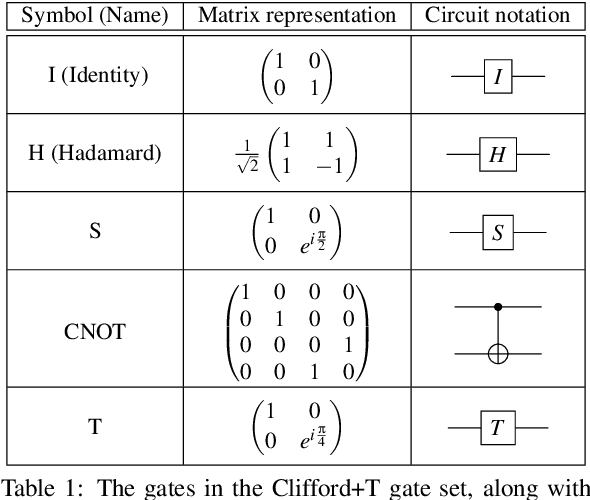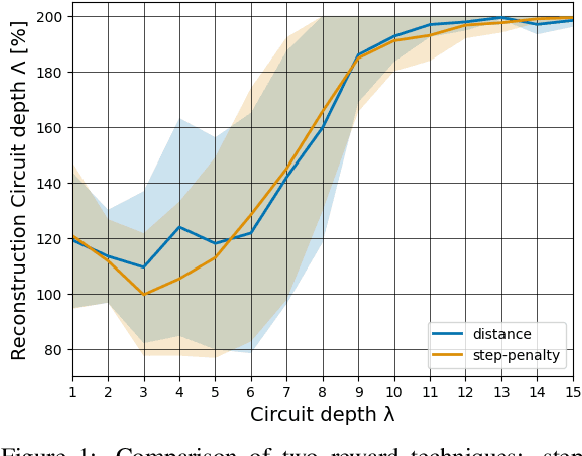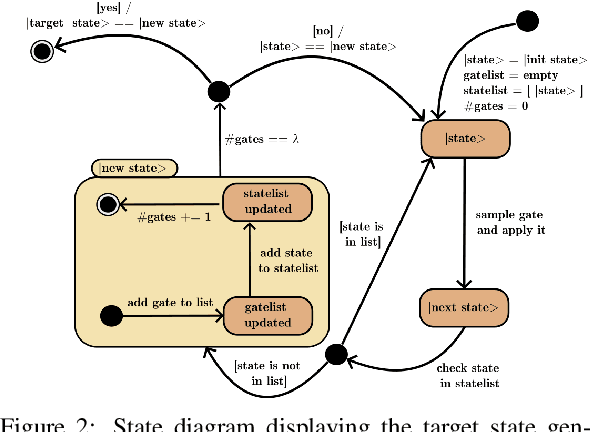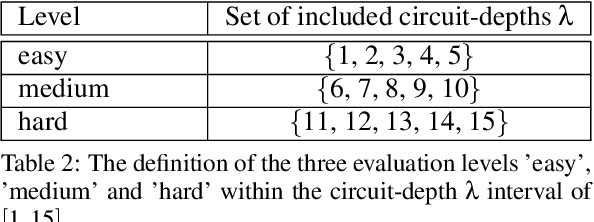Tom Schubert
A Reinforcement Learning Environment for Directed Quantum Circuit Synthesis
Jan 13, 2024



Abstract:With recent advancements in quantum computing technology, optimizing quantum circuits and ensuring reliable quantum state preparation have become increasingly vital. Traditional methods often demand extensive expertise and manual calculations, posing challenges as quantum circuits grow in qubit- and gate-count. Therefore, harnessing machine learning techniques to handle the growing variety of gate-to-qubit combinations is a promising approach. In this work, we introduce a comprehensive reinforcement learning environment for quantum circuit synthesis, where circuits are constructed utilizing gates from the the Clifford+T gate set to prepare specific target states. Our experiments focus on exploring the relationship between the depth of synthesized quantum circuits and the circuit depths used for target initialization, as well as qubit count. We organize the environment configurations into multiple evaluation levels and include a range of well-known quantum states for benchmarking purposes. We also lay baselines for evaluating the environment using Proximal Policy Optimization. By applying the trained agents to benchmark tests, we demonstrated their ability to reliably design minimal quantum circuits for a selection of 2-qubit Bell states.
 Add to Chrome
Add to Chrome Add to Firefox
Add to Firefox Add to Edge
Add to Edge